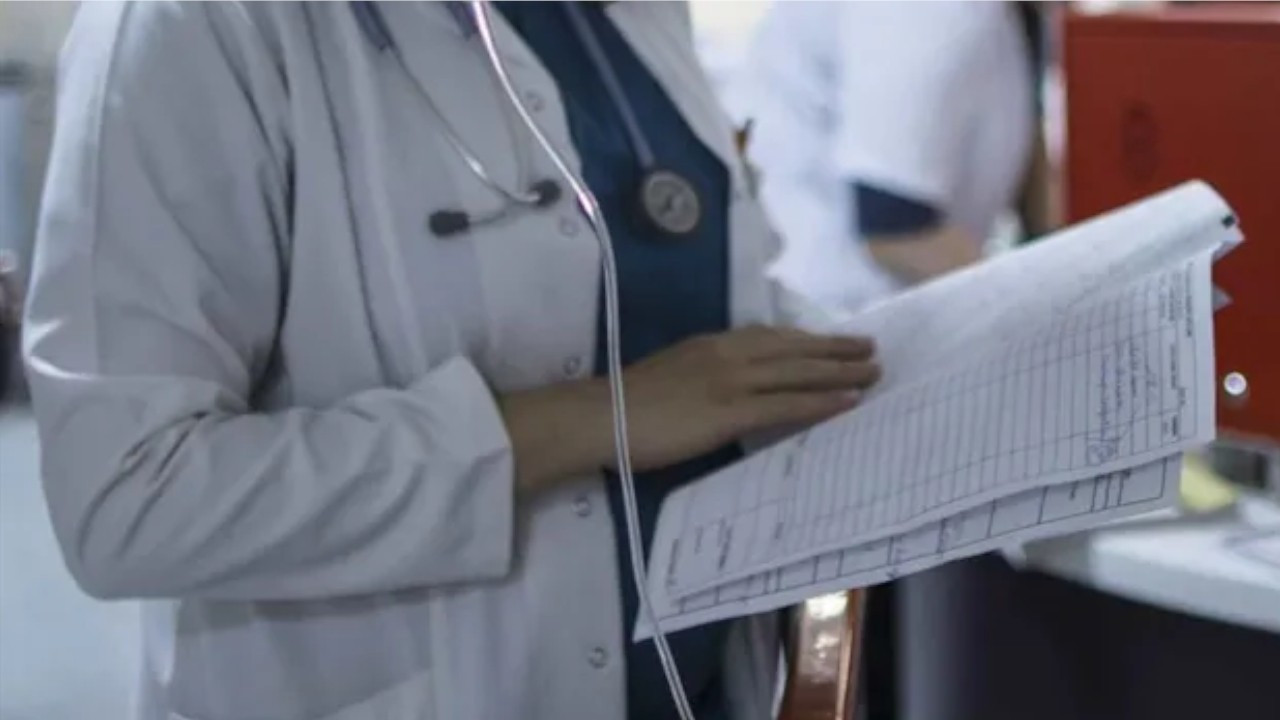Turkey’s healthcare system cracks over doctors' exodus and shortage of medicine
It has nearly become impossible for Turkish citizens to find appointments in public hospitals due to the growing shortage of doctors. The currency crisis has also made it challenging to access medicines while surgeries have been postponed over lack of medical equipment.
Duvar English
Turkey’s healthcare system is on the verge of a crackdown as people cannot find appointments in public hospitals due to shortage of staff along with the impact of exchange rate crisis on pharmaceuticals and medical equipment.
Many patients who apply to public hospitals through the Centralized Doctor Appointment System (MHRS) cannot get an appointment at all for some departments while the earliest appointment can be found is 15 days later for some departments, according to reporting of daily BirGün.
According to data from the Turkish Medical Association (TTB), a total of 1,361 doctors received a "certificate of good conduct" to go abroad in the first half of 2023. Turkish Medical Association (TTB) second chair Ali İhsan Ökten also stated that doctors prefer private hospitals due to poor working conditions in public hospitals. As the number of patients per doctor increased, the appointment crisis deepened.
Main opposition Republican People’s Party (CHP) MP Murat Emir stated that people living in capital Ankara’s central districts cannot find appointment at all and had to go to the remote hospitals. Citizens living in central districts cannot even find appointments for vital departments such as pediatric surgery, cardiology, dermatology and orthopedics.
BirGün journalists have tried to get appointments in departments such as ophthalmology, radiology, pediatric dentistry, pediatric and adolescent dental health, pediatric and adolescent substance and alcohol addiction in Istanbul, but were unable to find any appointments. The situation was the same in the country’s third biggest province İzmir for departments such as ophthalmology and gynecology.
Many cannot access to medicine due to exchange rate crisis
Turkey is heavily dependent on foreign markets for pharmaceutical supplies and has once again faced a crisis of medicine shortages in recent months.
In November 2022, the rate of unavailable medicines in the market reached 35 percent, prompting the Health Ministry to increase the euro exchange rate for medicines to 10.76 liras in December 2022. A similar crisis has occurred again as the value of Euro approached 30 liras in July 2023, according to the reporting of online news outlet T24.
All Pharmacists Employers' Association (TEİS) on July 5 demanded that the Euro exchange rate taken into account in drug pricing be raised to the real exchange rate as it became impossible to import pharmaceuticals. Turkish Statistical Institute (TÜİK) inflation data for June 2023 showed that the health was second sector with the highest increase compared to the same month last year with 65.69 percent.
Chair of Bursa Chamber of Pharmacists Okan Şahin stated that the rate of drugs not available in the market as of July is 25 percent and that if the exchange rate for medicines is not corrected, the crisis experienced in 2022 will occur again in the coming months.
Pharmacists say access to cancer drugs has become more difficult, while stomach medicines and eye drops are unavailable.
Public hospitals also have postponed surgeries due to lack of access to medical supplies after the record depreciation of the lira and the insufficient number of beds. Patients with urgent conditions have been forced to pay significant fees to private hospitals.

 Gov't-run TÜİK reports annual inflation rate as 38 percentEconomy
Gov't-run TÜİK reports annual inflation rate as 38 percentEconomy TTB announces record increase in number of Turkish doctors applying to go abroad in 2023Domestic
TTB announces record increase in number of Turkish doctors applying to go abroad in 2023Domestic Immigration of Turkish physicians increases 70-fold in 11 yearsHealth
Immigration of Turkish physicians increases 70-fold in 11 yearsHealth